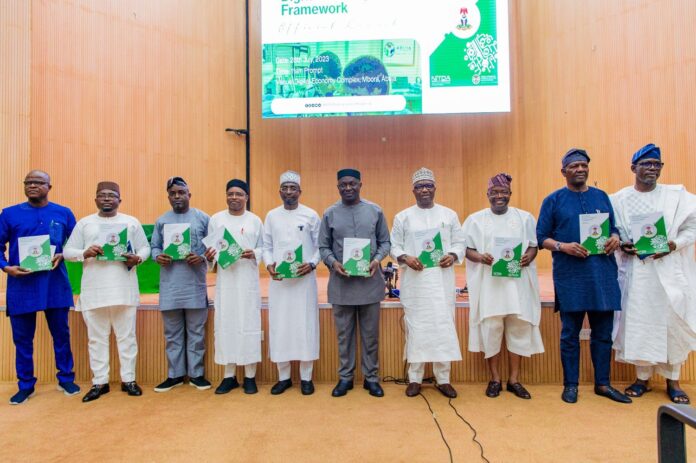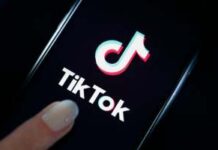
On Nigeria’s Digital Literacy and Skills Framework
By Mubarak Umar
TECHDIGEST – In today’s increasingly digital world, digital literacy is more important than ever. The ability to use technology effectively is essential for participating in the economy, accessing education, and staying informed. The importance of digital literacy and skills cannot be overstated. As Nigeria strives to assert its position on the global stage as a technology-savvy nation, the National Digital Literacy and Skills Framework (NDLF) launched by the National Information Technology Development Agency (NITDA), has emerged as a critical step towards empowering citizens and fostering socio-economic growth.
Nigeria is on the cusp of a technological revolution that will fundamentally change the way we live, work, and relate to each other. The Fourth Industrial Revolution (4IR) is built on the digital or Third Industrial Revolution (3IR), which has expanded into disruptive technologies and trends such as the Internet of Things (IoT), Virtual Reality (VR), Artificial Intelligence (AI), Robotics, Autonomous Driving Vehicles, 3D printing, Nanotechnology, Biotechnology, Materials Science, Energy Storage, and Quantum Computing. These technologies will require more technical capabilities than ever before, and Nigeria must prepare its workforce for the challenges of the 21st century work environment.
Building a digitally skilled workforce will accelerate Nigeria’s economic growth and development. A skilled workforce will be able to take advantage of the opportunities created by the 4IR, and Nigeria will be well-positioned to become a leader in the global economy. The government, businesses, and educational institutions must all work together to ensure that Nigeria has the workforce it needs to succeed in the 4IR.
The country with a population of over 200 million people, stands at a crossroad where the digital divide poses a significant challenge. While urban areas experience rapid technological advancements, many rural regions still lack access to essential digital infrastructure and face limited opportunities to acquire digital literacy.
This disparity hampers inclusivity and exacerbates socio-economic inequalities.
The unveiling of NDLF by Nigeria’s IT apex agency would bridge this divide, and provide standardised digital education and skills training across the nation, regardless of geographical location, the nation is set to create a level playing field, ensuring that every citizen has an equal chance to participate in the digital economy.
READ ALSO:NADIR lauds Tunji-Ojo as ministerial pick, condemns attack on NITDA Boss
In today’s globalised world, technology is rapidly changing the way we live, work, and learn. As a result, the skills that are essential for success in the workforce are also changing. In order to remain competitive in the global economy, Nigeria must ensure that its citizens have the digital skills they need to succeed.
Equipping Nigerians with relevant digital literacy skills will have a number of benefits. First, it will help to diversify the economy by creating new opportunities in the digital sector. Second, it will significantly reduce unemployment by making it easier for people to find jobs.
Read Also:
Third, it will enhance labor productivity and mobility by making it easier for people to learn new skills and move between jobs. Finally, it will improve investment by making Nigeria a more attractive destination for businesses.
Prior to this launch, there was no national framework that served as a guide for stakeholders on what constitutes the competence areas and specific competencies of literacy and skills required for a digital Nigeria. Thus NITDA, which is responsible for developmental regulation of the sector in Nigeria, has taken up the responsibility to lead the development of a national digital literacy and skills framework.
This document outlines a digital literacy and skills agenda for Nigeria by providing a clear and consistent definition of digital literacy, its competence areas.
It offers policy makers a means to frame digital literacy policies, as well as monitor and support their implementation; build digital literacy curricula, modules, and programs to afford proper planning, coordination and standardisation of digital literacy training and skills development in Nigeria; and enable assessment and certification, data collection, analyses, and measurement of the number and/or percentage of digitally literate Nigerians and their level of digital skills.
NDFL contains a vision for all Nigerian citizens to have digital skills equal to or exceeding the demands of their daily transactions and occupations in a Digital Nigeria; a nation that creates, uses and supplies advanced digital technologies and content to improve productivity across all sectors of the economy.
It’s primary objective is to ensure equitable access to digital literacy education for all population segments, including underserved communities; provide comprehensive digital literacy programmes to empower citizens with essential digital skills, from basic to advanced competencies; promote diverse participation in the digital economy, bridging the gender and socioeconomic digital divide; equip the workforce with relevant digital skills to meet the rapidly evolving job market demands; and foster a vibrant digital ecosystem by encouraging the creation of locally relevant and culturally significant digital content.
Digital literacy is no longer just a nice-to-have skill. It is now essential for success in the 21st century economy. A recent report by IDC found that there are over 1.5 billion current virtual workforce vacancies across the world. These vacancies are not just limited to tech-related jobs. They also include jobs in healthcare, education, and customer service.
In order to be qualified for these jobs, workers need to have the digital skills necessary to use technology effectively.
This includes skills such as using productivity software, navigating the internet, and communicating online.
Digital literacy is also essential for solving some of Nigeria’s most pressing problems.
For example, digital literacy can help to improve education by providing students with access to online resources and tools. It can also help to reduce unemployment by creating new opportunities in the digital economy.
The good news is that Nigeria is well-positioned to take advantage of the digital revolution. With the right investment in education and training, Nigeria can create a workforce that is digitally literate and ready to compete in the global economy.
The National Digital Literacy and Skills Framework is a bold and ambitious initiative. If successful, it will have a profound impact on the lives of Nigerians, by providing everyone with the opportunity to learn digital skills, the framework will help to create a more prosperous, equitable, and democratic Nigeria.



















